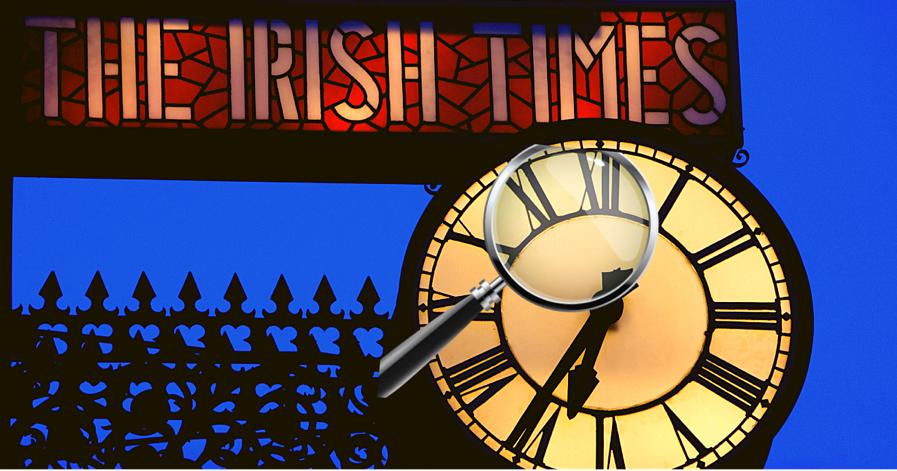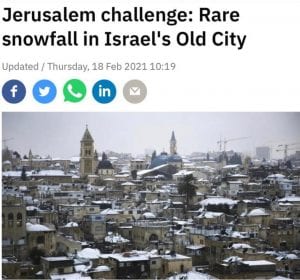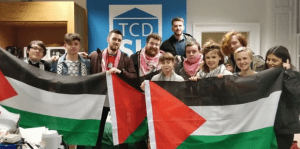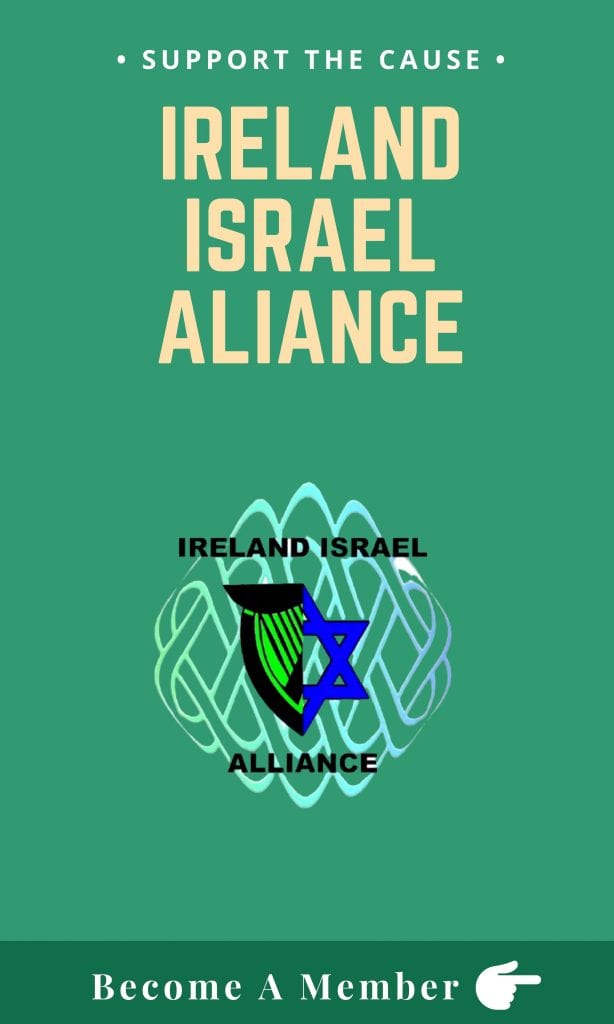Thanks in large part to the Irish Times, Israel cannot get a fair hearing in another democracy at the opposite end of Europe.
The Irish Times has long prided itself on being Ireland’s ‘paper of record’. Such a mission statement requires a media outlet to be accurate and objective and to carry as much of the truth as is necessary to be fair to all sides. In much of its news coverage, it is fair to say that it fulfils those criteria.
The current logo of the paper carries the message ‘Real news has value’. Yet, when it comes to its Middle East coverage the evidence shows that its concept of ‘real news’ embraces only those parts of news presentation that can be weaponized in pursuit of a campaigning agenda. And the most important facet of such presentation is the art of the headline. For the majority of readers who don’t follow the issues in any detail, the headline is everything. If the headline can be made achieve its agit-prop purpose, it matters much less whether the report’s content is fair, objective or factual.
Space limitations here do not allow a rehearsal of the many occasions in the past 20 years when its headlines have shown one-sided animus against Israel in their choice of words and syntax, usually portraying Israelis as the initiators of violence and Palestinians as victims deprived of all agency.
Don’t believe it? Google the words ‘Israeli police storm mosque’ and you will find a whole page of Irish Times headlines from 2002, 2004, 2007 and 2015 reporting the frequent situations in Jerusalem in which security forces were sent to the Temple Mount/Al-Aqsa compound (though not to the mosque itself) to quell stone-throwing violence by Palestinian youths. The repeated use of the word ‘storm’ in these headlines is especially telling. Palestinian media routinely use the term to describe even Jewish civilians walking peacefully and in silence (they are not allowed to pray visibly) up to the site of the ancient Temple. The editors, naïvely or maliciously, were happy to borrow a hyperbolic and incendiary word from Arab propagandists. The object of vilifying Israel was achieved.
This month (February 2021) tensions were known to be high among Ireland’s antisemites in the wake of the positive coverage of Israel’s superlative vaccination programme. It was predictable that something would have to be done. On 20 February, the paper carried a story by its Europe correspondent, Naomi O’Leary, headlined ‘Israeli forces have destroyed Irish aid donated to Palestinian families in repeat demolitions of a village in the West Bank’. An accompanying video was titled ‘Irish donations among destroyed items found in Palestinian village’.
The coverage concerned the latest in a long string of staged provocations in Area C of the West Bank engaged in by Palestinian and Bedouin elements aided by European NGO activists and EU junior diplomats. A Bedouin encampment had been repeatedly erected, with the help of an EU ‘umbrella group’, on land that has been an IDF firing range for many years, each time being demolished by the army. The report was effectively an extended photo-essay, with the accent on heart-wrenching pictures of household effects and destroyed tent equipment. As presented, O’Leary’s story was one devoid of nuance, a tale of brutal soldiers and impoverished peasants so one-sided, so simple, that it could be swallowed whole by the most jaded mind.
O’Leary’s usual remit is EU affairs. She has no known competence in the complexities of the Israel-Palestinian conflict. She seems innocent of any awareness, for one thing, of the Oslo Accords (1993-95) that divided the West Bank into three zones, of which Area C was by agreement left under full Israeli control. It seems that she fell straight into the allotted role for guileless European journalists whose human sympathies are exploited in the service of a Pallywood propaganda stunt.

Twenty years of playing fast and loose with the truth in its mischievous headlines have enabled the Irish Times to contribute to the creation of a significant anti-Israel constituency in Ireland. With each incident – the Mohammed al-Dura affair (2000), the ‘Jenin massacre’ (2002), the Hezbollah war (2006), the Gaza anti-rocket military operations (2009, 2014), the Mavi Marmara affair (2010) – a predictable chain of cause and effect is set in motion.
Inflammatory agit-prop headlines trigger a popular rush to judgment. Soon, the letters page and comments section fill up with outraged calls for boycott, slogans of ‘apartheid’ and ‘genocide’ and tsunamis of ignorant and often antisemitic hatred. Corrections may follow allegations, investigative reports may exonerate Israel, but the mob has moved on and the damage done. Over the years, the effect is cumulative.
By Dermot Meleady




